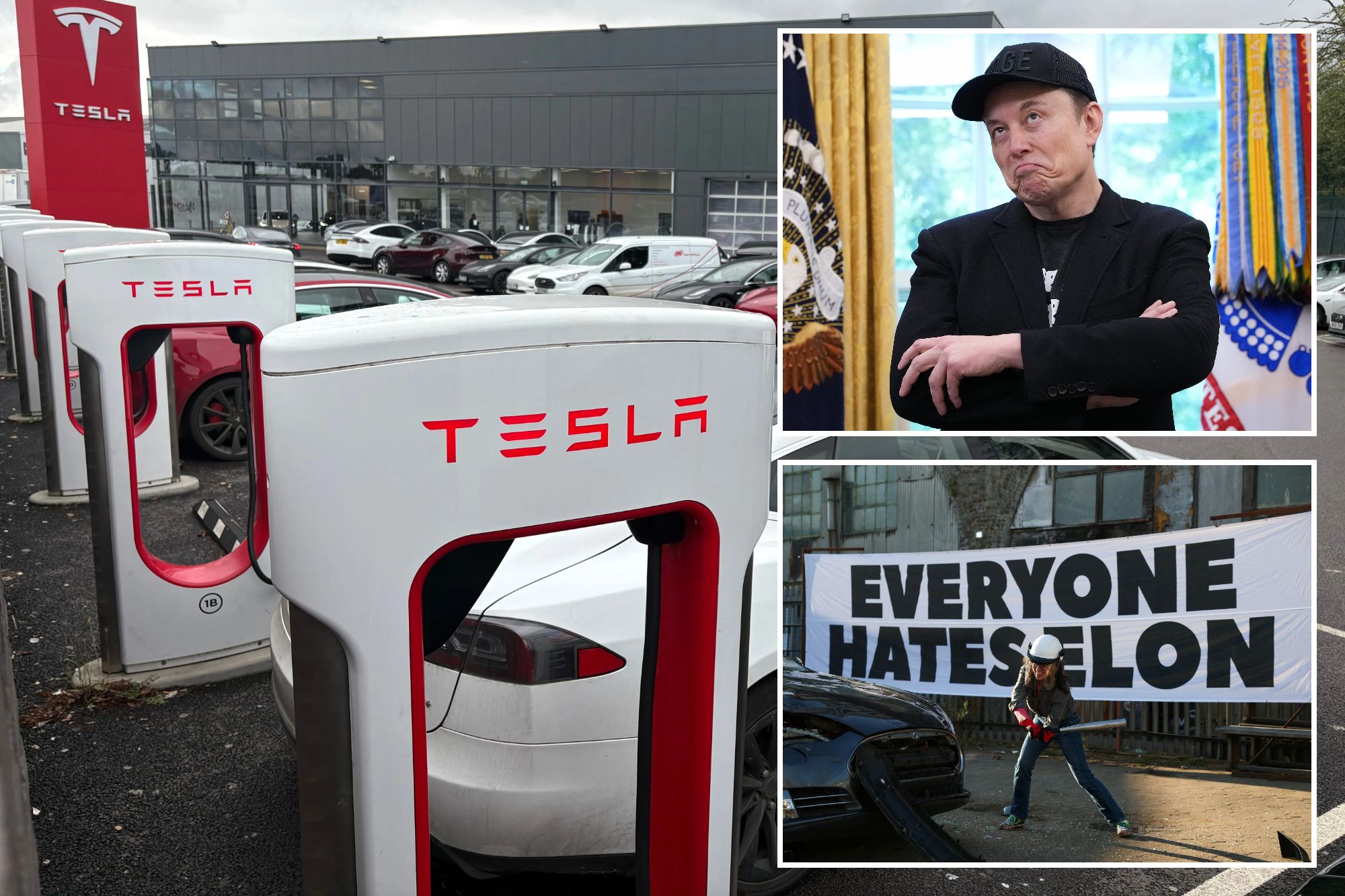Tesla sees biggest sales drop in 10 years as EV demand falls

Tesla's New Affordable Car: A Potential Game Changer
Tesla has announced that it has developed initial versions of an affordable car, a move that is expected to address the significant drop in sales the company has faced globally. This development comes as Tesla experiences its worst quarterly sales decline in over a decade, with profits falling short of Wall Street expectations. Despite this, the company’s profit margin on vehicle production was better than many had anticipated. Tesla shares dropped 2.6% in after-hours trading.
The company plans to begin volume production of its long-anticipated cheaper vehicle in the second half of the year. This initiative aims to reignite demand as Tesla faces increasing competition from more affordable electric vehicles (EVs), particularly in China. Additionally, the company continues to deal with a persistent backlash against Elon Musk’s far-right political views.
Financial Performance and Market Response
Tesla’s Chief Financial Officer, Vaibhav Taneja, mentioned during a call with investors that production of the more affordable car will start next quarter, albeit slower than initially planned. The company did not provide an update on its full-year delivery forecast.
Analyst Jacob Bourne from Emarketer noted that Tesla’s disappointing results were not unexpected given the challenges the company has faced recently. He emphasized that a truly affordable model could significantly boost sales if positioned effectively without undermining higher-priced models.
Despite launching a refreshed version of its popular Model Y SUV, which investors hoped would revive demand, Tesla experienced a 12% revenue drop for the second consecutive quarter. A 51% decline in sales of automotive regulatory credits also impacted revenue and profit.
Revenue for the April-June quarter fell to $22.5 billion from $25.50 billion a year earlier. Analysts had expected $22.74 billion, according to data from LSEG. Adjusted profit per share of 40 cents lagged behind the consensus of 43 cents per share.
Production and Future Plans
The automotive gross margin, excluding regulatory credits, was 14.96%, exceeding Wall Street estimates, partly due to lower costs per vehicle. However, Tesla’s global deliveries fell by 13.5% in the second quarter, missing Wall Street targets.
Initially, Tesla had stated that production of the more affordable model would begin by the end of the first half of the year. Sources indicated that the vehicle, a stripped-down version of the Model Y SUV, would be delayed by at least several months. On Wednesday, Tesla did not release details about the model, including the number of units produced or its pricing.
The company remains committed to its 2026 timeline for volume production of its custom-built robotaxi, called the Cybercab, and the Semi truck.
Investor Concerns and Leadership Challenges
A significant portion of Tesla’s valuation hinges on its bet on the robotaxi service, which recently started a small trial in Austin, Texas. The company is also working on developing humanoid robots.
Investors are worried about whether Musk can dedicate enough time and attention to Tesla after forming a new political party this month, which led to a conflict with President Trump. Musk had previously promised to reduce his government work and focus more on his companies.
Additionally, a series of high-profile executive departures, including a long-time confidant who oversaw sales and manufacturing in North America and Europe, has raised further concerns within the company.